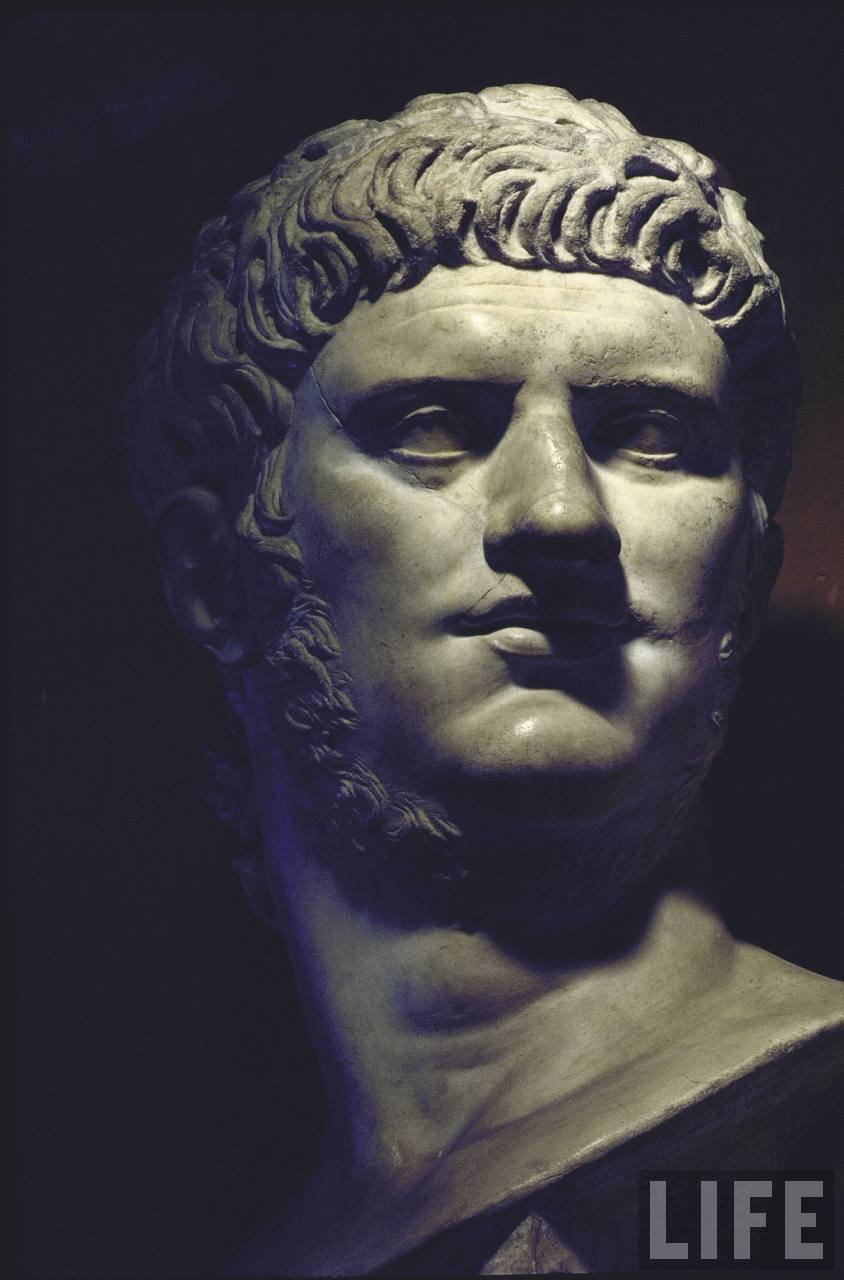http://wwwg.uni-klu.ac.at/archeo/chrono/nero.jpg
The petulant gentleman in the picture above is the Roman Emperor Nero, a homicidal maniac and sadist who enjoyed absolute power until some dissidents got together and assassinated him. Nero was on the throne when St. Paul wrote these famous words in his epistle to the Romans:
“[T]he powers that be are ordained of God.” (Romans 13:1)
There are now, have always been, and probably always will be Christians who take that line to mean that whatever fool or criminal happens to be in power at the moment, he is entitled to respect and obedience because God Himself has put him in the catbird seat.
But is that really what “ordained” means?
Let’s go to Strong’s Concordance, an authoritative source. In the original Greek, the word translated as “ordained” is tasso, meaning “to arrange in an orderly manner, i.e. assign or dispose (to a certain position or lot)–addict, appoint, determine, ordain, set.”
There are a dozen different Greek words in the New Testament that have been translated into English as “ordain.” Most of these Greek words have to do with putting something into a particular place.
Tasso, the word Paul uses in Romans 13:1, does not mean to authorize, to endorse, or to deputize. Later in the chapter, we see that God assigns to the civil government–to the state, if you like–the responsibility to uphold the law and to protect peaceable, law-abiding citizens, and the power (and duty) to restrain evil and to punish evildoers.
In the world Paul lived in, the Roman authorities were perfectly capable of carrying out those functions, and usually did. Hence they were entitled to have their positions respected and their lawful orders obeyed, and so Paul advised Christians to do.
But suppose the powers that be break the law instead of upholding it, and plunder and terrorize peaceable, law-abiding folk while favoring and even rewarding evildoers? What if the ultimate power in the state belongs to a bloodthirsty lunatic like Nero?
The rest of the Bible, both Testaments, certainly does not teach us that God is with every power that succeeds in setting up shop in a fallen world: only that God is the sovereign ruler of heaven and earth, and nothing happens without Him.
To say that illegal and tyrannical rulers are ordained by God, in the sense of being authorized by God, is as foolish as blaming the sovereign Lord for one’s own sins. Dude, God ordained me to steal hubcaps!
As Nero and so many others like him found out the hard way, God can get rid of a despotic monster whenever He pleases. He blessed the Maccabees when they rose up in rebellion against the blaspheming tyrant, Antiochus Epiphanes. I believe He blessed the 13 American colonies when they rose up against King George III.
Not to write a book here, but how do we know which “powers that be” that God has blessed, and which ones He has allowed to exist, but not blessed?
The Bible has the answer, in the words of Jesus Christ Himself: “By their fruits ye shall know them.” (Matthew 7:20)
If it were not so, every successful assassin and usurper could claim a God-given legitimacy.
Like this:
Like Loading...




